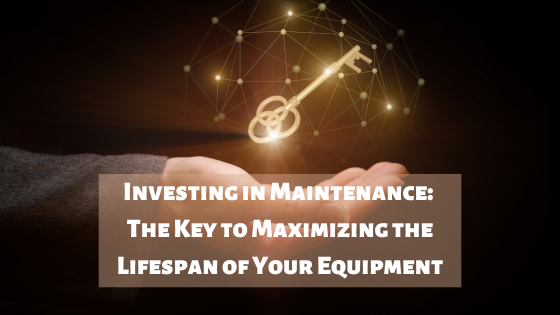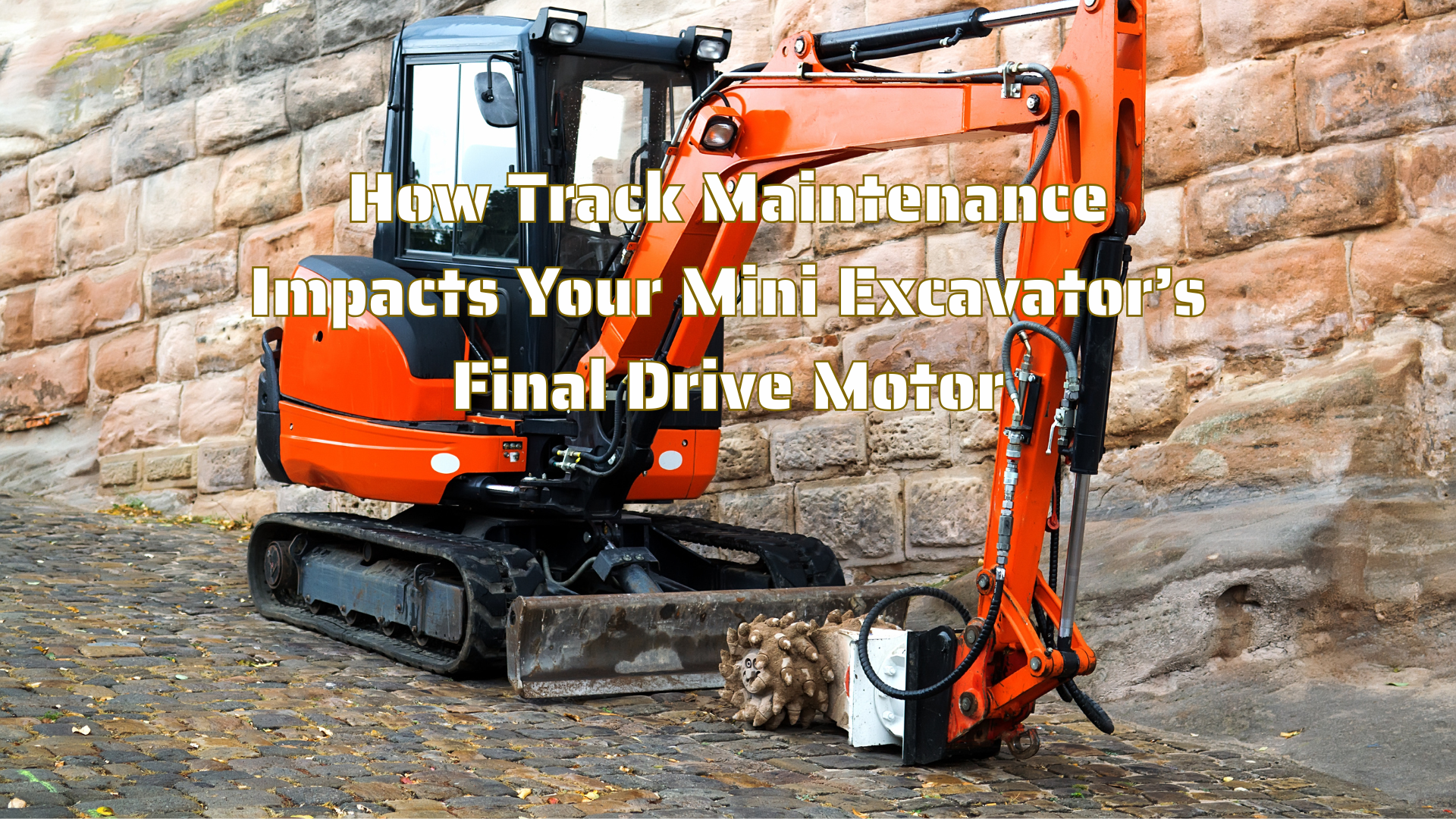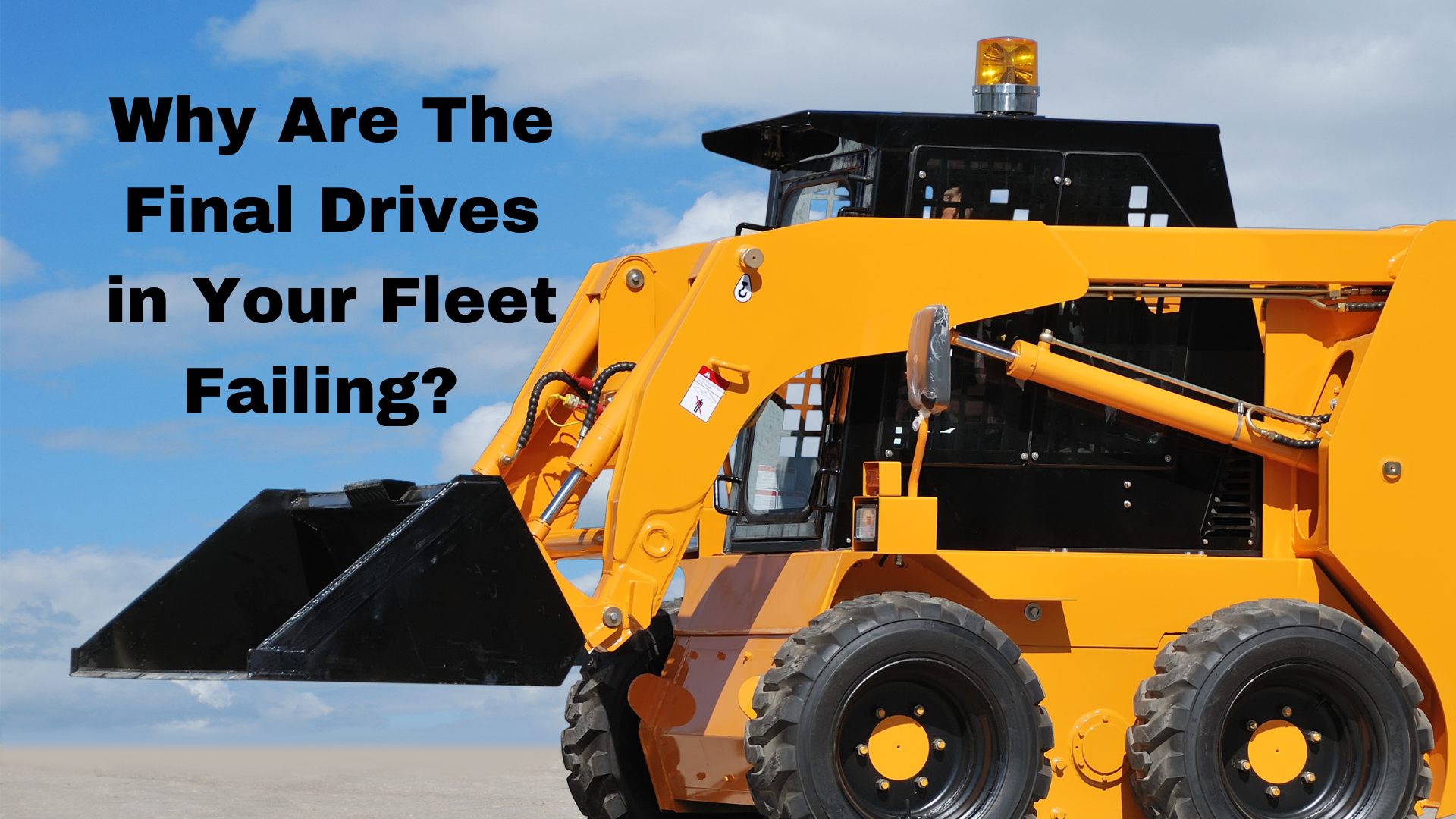Investing in Maintenance: The Key to Maximizing the Lifespan of Your Equipment
Posted by Jim Strong on Jan 10th 2025
Maintenance is frequently neglected in both heavy and compact machinery until issues emerge. At Texas Final Drive, we view maintenance as an expense and an investment in your equipment's longevity and efficiency. This blog post will discuss the significance of routine maintenance, its benefits, and practical advice for keeping your machinery in excellent shape.

Here are a few other Shop Talk Blog posts you might find interesting:
- Final Drive Cores and the Remanufacturing Revolution [VIDEO]
- CAT on Hydraulic Contamination
- Diagnosing a Final Drive Motor That is Screeching
The Importance of Regular Maintenance
Regular maintenance can be considered investing in your equipment’s reliability, performance, and useful life. The regular maintenance of your equipment is essential for several reasons:
- Preventing Breakdowns: Routine inspections and timely repairs can prevent unexpected breakdowns, which can halt operations, sometimes literally. Unexpected downtime is always expensive, and missed deadlines can compromise your company’s reputation.
- Optimizing Performance: Well-maintained equipment runs more efficiently, leading to better performance and reduced fuel consumption. Better performance allows you to finish jobs faster and save money on fuel.
- Extending Lifespan: Proper care can significantly extend the lifespan of your machinery, saving you money on replacements. This can be especially crucial for older equipment that may no longer supported by the OEM.
Benefits of Investing in Maintenance
Cost Savings: While maintenance has an upfront cost, it’s usually far less expensive than major repairs or replacing damaged components. Consider this: a catastrophic bearing failure in a final drive motor can total the motor if it isn’t found quickly enough. Replacing that bearing once you notice signs of impending failure (e.g., vibration, new noise, overheating, etc.) will be cheaper than replacing the final drive motor.
Safety: Regular maintenance ensures that your equipment is safe to operate, reducing the risk of accidents and injuries. This is especially true for booms and lift arms, as well as for steering a skid steer or turning the body of a mini excavator in a small area. If these devices fail, they can harm the equipment and anyone nearby.
Increased Resale Value: Well-maintained machinery retains its value better, making it easier to sell or trade in when the time comes. Sure, a rusty old Bobcat skid steer loader may still do its job easily, but it’s going to be harder to sell than a well-maintained one if that becomes necessary.
Common Maintenance Tasks
For hydraulic systems, there are four key types maintenance tasks, as follows.
Hydraulic System Check: Regularly inspect the hydraulic system for leaks and ensure fluid levels are adequate and clean. Low hydraulic fluid can cause many problems, and dirty hydraulic fluid can lead to catastrophic failure.
Lubrication: Keep all moving parts well-lubricated to reduce friction and prevent wear and tear. For example, the gear oil for the planetary of your final drive needs to be checked and changed regularly for optimal performance and to prevent metal-metal contact.
Filter Replacement: Replace filters as needed to ensure that your machinery runs smoothly and efficiently. And remember to buy good quality filters: cheap filters can cause more problems than they can solve.
Cleaning the Undercarriage: A build-up of debris around the undercarriage can weigh down the machine, impact track tensions, and potentially lead to a damaged final drive. Cleaning the undercarriage regularly (ideally after every use, but more realistically after a project) is an often forgotten aspect of maintenance.
Practical Maintenance Tips
Finally, here are a few maintenance tips:
- Follow Manufacturer Guidelines: Always adhere to the maintenance schedule and recommendations provided by the manufacturer.
- Conduct Regular Inspections: Schedule routine checks to identify and address potential issues before they become significant problems. Preventive maintenance is always cheaper than reactive maintenance (which always takes place after a failure).
- Keep Records: Maintain detailed records of all maintenance activities, including dates, tasks performed, and any replacement parts used. This can help with several different aspects of your equipment, including deciding when to replace equipment, documenting the cause of failure, and making it easier to perform root cause analysis when a component fails repeatedly before its expected lifespan.
Conclusion
Regular maintenance is essential for your heavy machinery's longevity. At Texas Final Drive, we recognize the importance of upkeep and provide services to keep your equipment in top condition. Prioritizing maintenance maximizes your machinery's lifespan, enhances safety, and leads to long-term savings.







